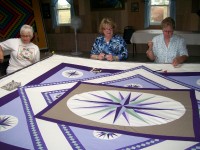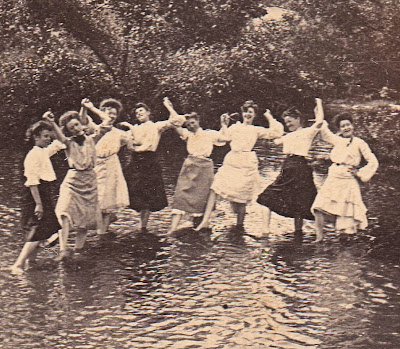In a few months I’m going to meet my first grandchild, a little boy. (I can hardly wait!) I enjoyed my children’s baby years so much, and friends tell me being a grandma is even more fun. How can that be possible? I’ll find out soon.
One of the things I enjoyed most about my babies was their bright little minds. Almost from the time they were born, it seemed, they were scoping out their world, eyes wide and curious. As they grew, I was amazed at how ready they were to explore with their eyes, their hands, their mouths, and before long, by crawling and walking. I didn’t have to coax them to do this; I just had to make their world safe for exploration.
Take my eldest son, for instance, the father of my upcoming grandchild. When he was a baby, he was easy to care for, a mellow guy (as long as his tummy was full and his diaper was dry). Before I started making supper each night, I’d put him in his baby seat on the kitchen counter and hang a little squeaky stuffed bluebird right in front of him. At first he’d just stare at it. Before long he was cooing at it. And then one night he took a swat at it! This became a fun game for him. For weeks I cooked supper to the sounds of him cooing and the bluebird squeaking as he whacked it and chortled.
I’m sure this activity was good for his eye-hand coordination (and may even have led to his love of baseball!) But it was also a good lesson for me: he learned to do this without my coaxing, prodding, or insistence. I gave him a learning environment, and his God-given intelligence took care of the rest.
Of course I’d forgotten times like this when I first started homeschooling my kids. I often parked them in front of textbooks and “taught” them and expected them to learn. And they did, but before long it became a chore. There was no intense interest, no chortling.
Over time I discovered that true learning requires the interest and desire of the student. I had read this in books by John Holt, but what really cemented it was seeing my children pursue their interests and excel in them. By the time they were teens, my participation primarily involved driving them to a limited number of activities of their choice and paying for the books and/or supplies needed in their pursuits. The rest was up to them, and that God-given intelligence I first saw when they were tiny.
So if you’re a bit nervous about whether you’re buying the right curriculum this year, or whether you’re going to be up for another year of homeschooling, consider that much of the task of educating your children is up to them; if you create a vibrant learning environment, answer their questions and facilitate learning by obtaining what they need, you can count on them to do the rest.
As for me, my kids are grown and I’m not homeschooling anymore, which leaves me a lot more time to make things for the baby 🙂











